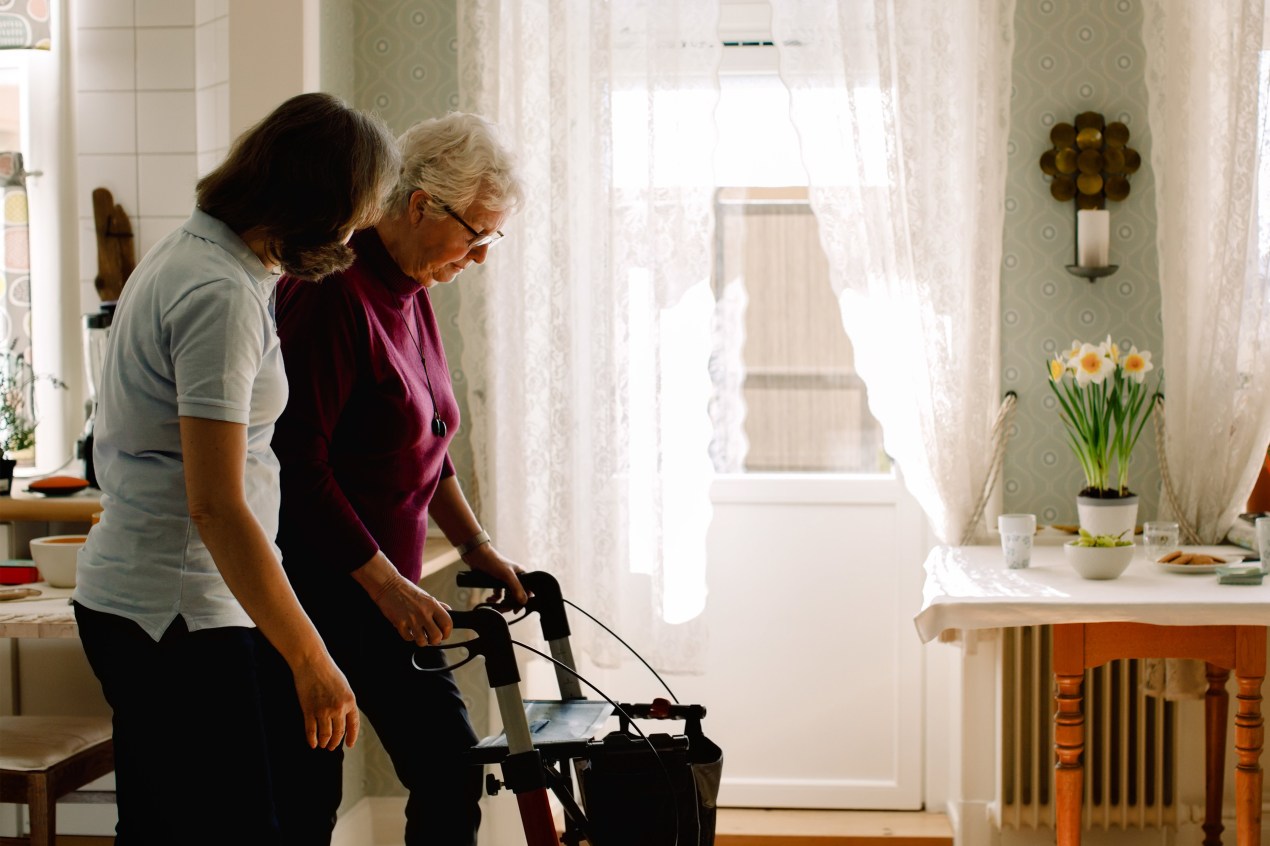Just How to Offer Personalized and meaningful Dementia Treatment
The stipulation of significant and customized dementia treatment needs a nuanced understanding of each person's unique history and choices. Treatment methods must be tailored to engage the person in means that reverberate with their past experiences, thus cultivating psychological links and boosting total health.
Understanding Dementia Individuality

Treatment providers have to analyze cognitive capacities, emotions, and behavioral patterns to create individualized treatment strategies. This may consist of adapting communication styles, using familiar regimens, and utilizing significant activities that reverberate with the individual's previous experiences. As an example, engaging an individual with a passion for songs through music activities might evoke favorable memories and improve psychological wellness.
In addition, comprehending individuality cultivates a caring technique that respects the dignity and freedom of those living with mental deterioration. It urges caregivers to listen proactively, observe behavioral hints, and remain flexible in their caregiving techniques (memory care charlotte). By prioritizing uniqueness, caretakers can not just boost the lifestyle for those with dementia but also build a more profound understanding of their distinct perspectives, inevitably leading to extra effective and compassionate treatment
Building Trust and Rapport
Establishing trust and rapport is fundamental in mental deterioration treatment, as it produces a risk-free and helpful atmosphere for people influenced by the condition. Structure these links calls for constant, compassionate interactions that prioritize the requirements and feelings of the individual. Caretakers need to come close to interactions with compassion, identifying the special obstacles dealt with by those with dementia, including amnesia, confusion, and emotional distress.
Caretakers should utilize clear, straightforward language and non-verbal hints to convey understanding and assistance. Active paying attention shows respect and recognition, enabling people to express themselves without anxiety of judgment.
Knowledge with daily activities and caregivers advertises a feeling of security, allowing individuals to really feel even more at simplicity. By doing so, caregivers enhance the person's identification, advertising dignity and respect, ultimately leading to stronger, a lot more meaningful relationships in the context of mental deterioration treatment.
Tailoring Activities and Involvement
Involving individuals with dementia via customized activities can considerably boost their quality of life and foster a deeper connection in between caregivers and those in their care. Customization is crucial, as it acknowledges the unique histories, passions, and capacities of each individual. Activities must be designed to promote cognitive functions, promote physical activity, and urge social interaction, all while staying satisfying and fulfilling.
To tailor tasks efficiently, it is critical to analyze the individual's preferences and cognitive capacities. As an example, some may discover happiness in horticulture, while others could value songs or art. Easy, acquainted jobs can evoke favorable memories and provide a sense of achievement. Furthermore, integrating aspects of routine can use convenience and stability, enabling individuals to involve with activities more confidently.
Caretakers can improve interaction by participating alongside the people, promoting a helpful and interactive setting. It is also important to stay adaptive and adaptable, changing activities as required based upon the person's energy levels and state of mind. Ultimately, look here significant involvement through tailored tasks not only uplifts people with mental deterioration however also enhances the caregiver connection, advertising shared enjoyment and understanding.
Reliable Communication Methods
Reliable interaction is important in dementia care, as it promotes a feeling of link and understanding between caregivers and individuals experiencing cognitive decline. Utilizing efficient communication techniques can significantly improve the top quality of communications and reduce irritation for both celebrations.
First of all, using easy, clear language is crucial. Acquainted words and brief sentences aid people understand and react better. Furthermore, maintaining a tranquility and favorable tone can develop a calming setting, which is vital for people that might really feel distressed or overwhelmed.
Non-verbal interaction plays a substantial function. Caretakers ought to take notice of body language, facial expressions, and gestures, as these signs can usually share even more than words - memory care facility charlotte. Developing eye get in touch with and using gentle touch can additionally strengthen connections and convey empathy
Energetic listening is an additional key part. Caretakers must be attentive, permitting individuals to share themselves fully, even if their speech is fragmented or uncertain. This shows regard and urges much more open interaction.
Lastly, validating sensations and experiences is critical. Acknowledging emotions, regardless of their basis actually, can offer comfort and reinforce the caregiver-individual relationship, promoting a much more supportive atmosphere.
Supporting Household Involvement
Family members involvement plays a considerable role in the general care and assistance of people with dementia. Involving member of the family creates a collaborative setting that boosts the high quality of care, cultivates emotional links, and makes certain that the special needs of the person are satisfied. Member of the family typically have invaluable insights right into the person's background, preferences, and habits, which can be vital in developing individualized treatment strategies.

In addition, relative can be encouraged to take part in everyday treatment tasks, such as site here taking part in meaningful conversations or assisting with familiar routines. This not only helps endure the person's feeling of identification yet also reinforces familial bonds. Ultimately, by promoting a comprehensive technique that values household payments, care service providers can improve the total experience for both individuals with dementia and their loved ones.
Final Thought
Finally, delivering meaningful and tailored dementia care necessitates this post a comprehensive understanding of each person's special history and choices. Establishing trust and relationship through thoughtful interactions is important for developing a risk-free environment. Tailoring tasks to resonate with individual interests boosts emotional health and promotes self-respect. Effective communication strategies further support this procedure, while actively including member of the family enhances the caregiving experience and cultivates much deeper connections. Collectively, these approaches contribute to boosted lifestyle for people with dementia.
The arrangement of significant and individualized dementia care requires a nuanced understanding of each person's special history and choices. By doing so, caretakers reinforce the individual's identification, advertising dignity and regard, eventually leading to stronger, a lot more significant connections in the context of dementia care.
Involving people with dementia via tailored tasks can significantly boost their high quality of life and promote a deeper connection in between caretakers and those in their care.Family members participation plays a substantial function in the overall treatment and support of people with dementia. Ultimately, by cultivating a comprehensive method that values household payments, care suppliers can improve the general experience for both individuals with mental deterioration and their liked ones.